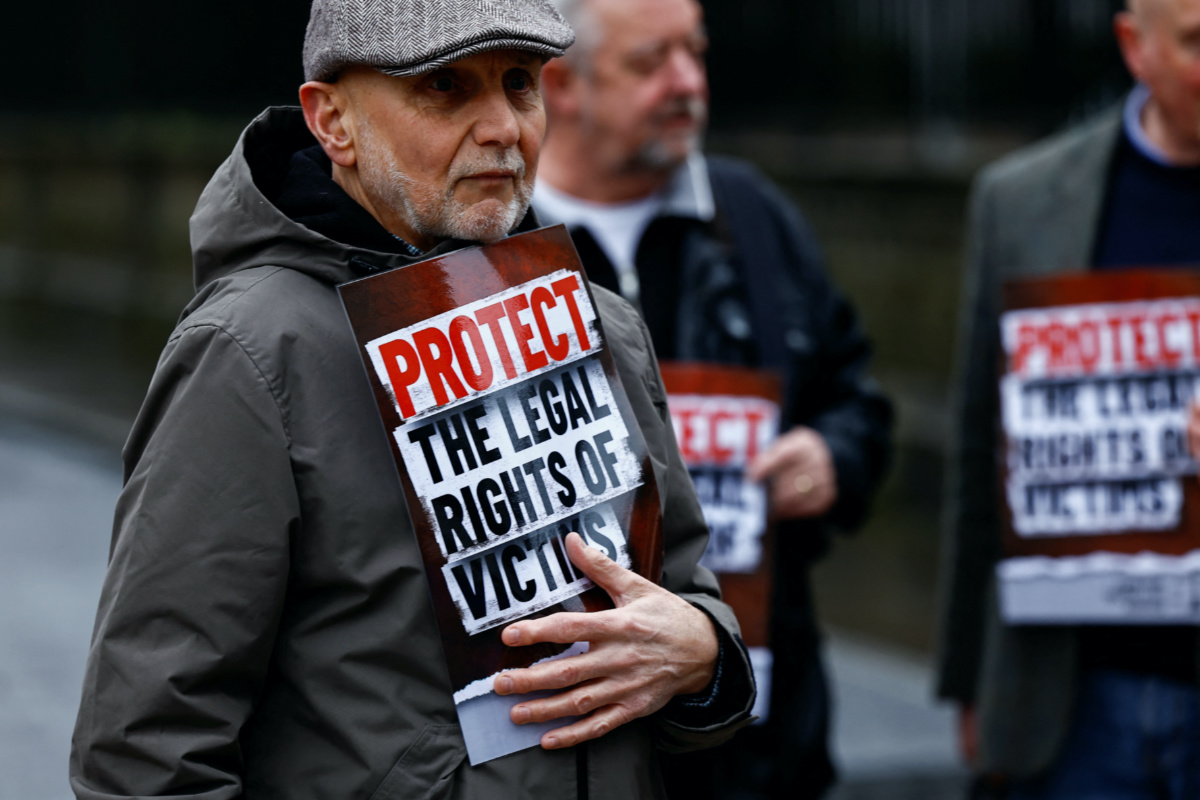Belfast, Northern Ireland
Reuters
Belfast’s High Court ruled on Wednesday that a law introduced by Britain to offer conditional amnesties to ex-soldiers and militants involved in the region’s decades of violence is in breach of the European Convention of Human Rights.
The law, introduced last year to offer immunity from prosecution for those who cooperate fully with a new investigative body, sparked more than 20 legal challenges in Northern Ireland, mostly from victims’ families, who said it contravenes the ECHR and a 1998 peace deal that ended the three decades of bloodshed.

A supporter of relatives and victims of the conflict known as ‘The Troubles’ in Northern Ireland, holds a sign, at the Royal Courts of Justice ahead of a High Court judgment in a landmark legal challenge to the UK government’s Troubles Legacy Act, in Belfast, Northern Ireland, on 28th February, 2024. PICTUre: Reuters/Clodagh Kilcoyne
“I am satisfied that immunity from prosecution provisions under Section 19 of the Act are in breach of the lead applicant’s rights pursuant to Article 2 of the ECHR. I am also satisfied that they are in beach of Article 3 of the ECHR,” Judge Adrian Colton told the court in a 200-page judgment.
“There is no evidence that the granting of immunity under the Act will in any way contribute to reconciliation in Northern Ireland. Indeed, the evidence is to the contrary.”
The ruling can be challenged in Northern Ireland’s Court of Appeal and should that fail, the UK Supreme Court. The more than 20 challenges were condensed down to lead cases that were ruled on on Wednesday.
Victims’ families, human rights organisations and all major political parties in Northern Ireland – both British unionist and Irish nationalist – oppose the law. The Irish Government is mounting a separate legal challenge against Britain over it.
Lawyers for the applicants told the court in November that victims’ families who had been seeking justice for decades had suffered “a form of secondary trauma.”
Britain has defended the law, saying prosecutions linked to the events of up to 55 years ago are increasingly unlikely. A lawyer for the government argued that the law was a “logical outworking” of the 1998 Good Friday Agreement and could draw a line under the conflict.
Around 3,600 people died in three decades of confrontation between Irish nationalist militants seeking a united Ireland, pro-British “loyalist” paramilitaries and the British military.






